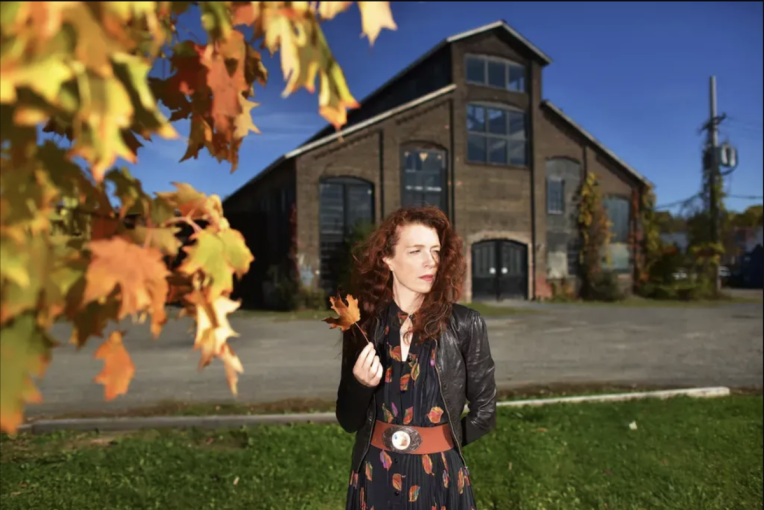Melissa Auf der Maur’s Personal Memoir of ’90s Rock Stardom
Da Capo is set to publish “Even the Good Girls Will Cry” on March 17.

Da Capo is set to publish “Even the Good Girls Will Cry” on March 17.

If you grew up on ’90s alt mythology, Melissa Auf der Maur is already a legend: bassist for Hole at its flashpoint, soldier in The Smashing Pumpkins’ imperial phase, fluent in grief-era rock touring and the weather system of fame. But her forthcoming memoir, Even the Good Girls Will Cry (Da Capo, March 17, 2026), promises something more useful than encore stories. It traces a young artist figuring out who she is before the amps, the arena lights, and the set lists: Montreal kid, cassette DJ, fan, daughter, schemer, accidental witness, and relentless yes-sayer.
The book begins in a bohemian Montreal orbit where music wasn’t a career path—it was a local climate. Working coat checks, DJ booths, and ticket windows, she crossed paths with the bands that would come to define the decade: Nirvana, Sonic Youth, Pavement, Jane’s Addiction. The coups that followed are the stuff of rock fable, but the memoir’s value lies in the telling. A hurled beer bottle, a fan letter mailed to a PO box, a risk that actually paid off, and suddenly her band Tinker is opening for the Pumpkins. Soon after, Billy Corgan is recommending her to Courtney Love. The axis tilts.

Hole’s 1994-95 “Live Through This” tour—already engulfed in tragedy before she stepped onstage—becomes the book’s emotional center of gravity. Auf der Maur arrives in the aftermath of Kurt Cobain’s death and the loss of bassist Kristen Pfaff, touring with a band that could combust on command. She writes from the eye of it without succumbing to mythmaking. The takeaways are human-scaled: the work of holding it together, the choreography of chaos, the force of Courtney Love as frontwoman and live wire, the grind of grief lived in real time, in public, with a backbeat.
The literary mode here isn’t tell-all. It’s excavation: of a self, an era, and a pre-internet fame engine that operated on scarcity, accident, and vibes. There are cameos—Grohl, Stipe, Wainwright, Nicks, Stiller—but they’re brushstrokes, not the portrait. Auf der Maur is better when she’s writing about endorsement letters, fluorescent backstage hallways, or the strange power of being unmistakably present in your own life, even as the world is ricocheting.
For Hudson Valley readers, the memoir also serves as a reminder of the artist she became after the tour buses idled. In 2010, Auf der Maur co-founded Basilica Hudson with her husband, filmmaker Tony Stone, turning a reclaimed industrial cathedral on the waterfront into a cultural engine room. Basilica has since become a vibrant node in the region’s arts ecosystems—rooted in music, but porous to everything: performance, community, risk, reinvention.
Even the Good Girls Will Cry is the origin story before that chapter. It’s pre-Hudson, pre-Basilica, pre-institution-builder. What it shares with her work here, unmistakably, is method: clear eyes, a curator’s brain, an artist’s churn, and a belief that sometimes doors open not because you deserve it, but because you knocked and refused to leave.